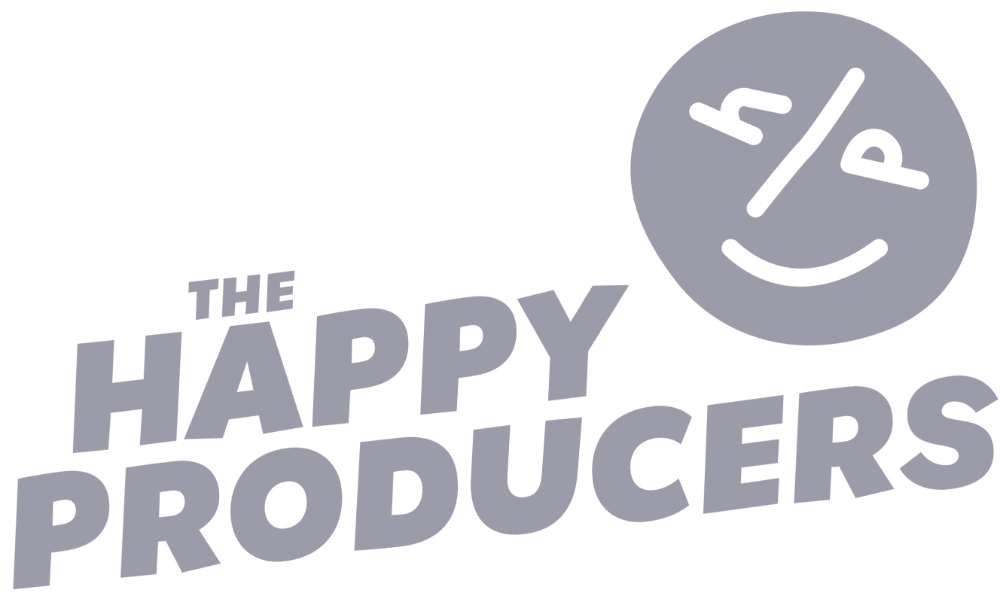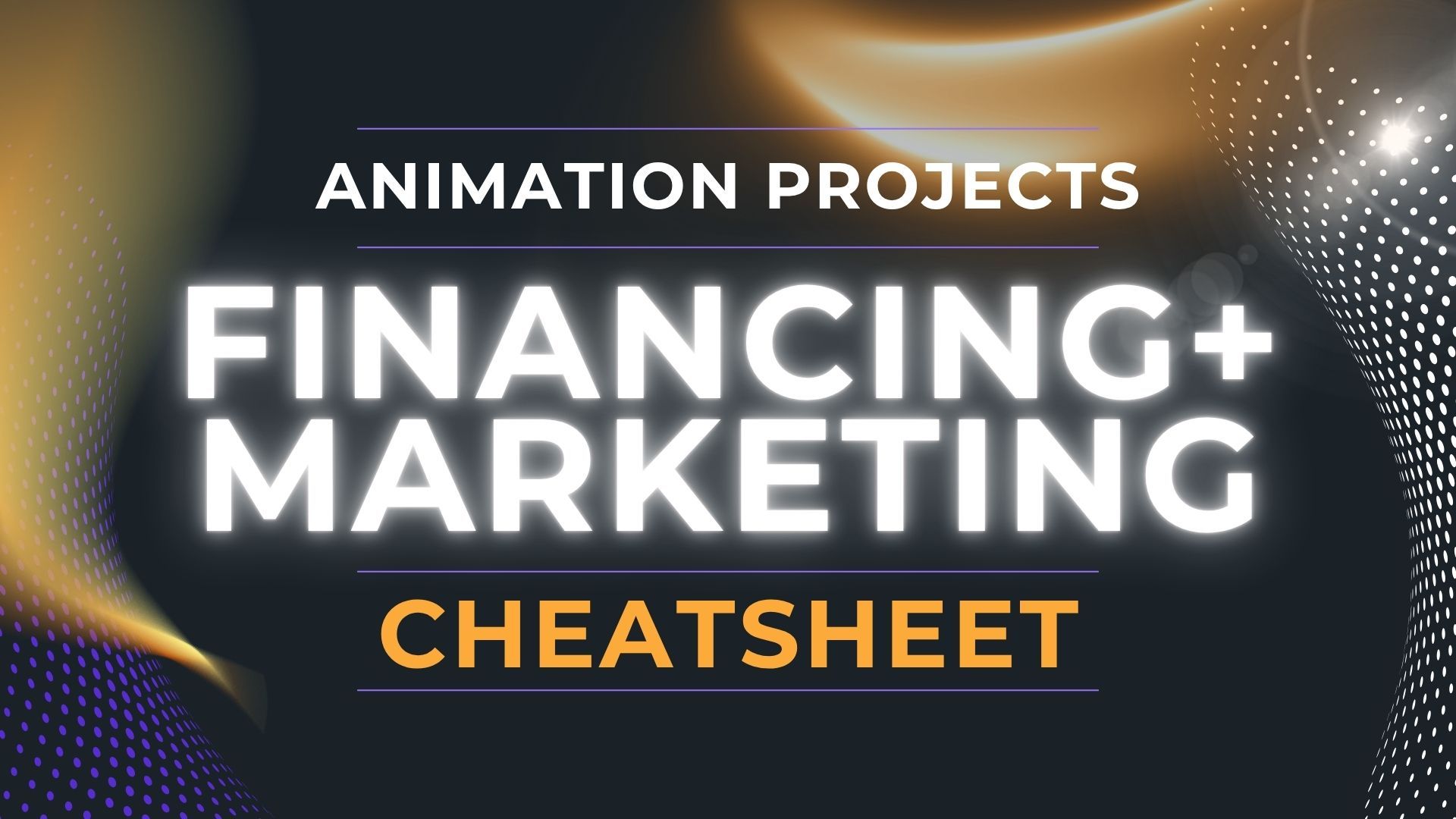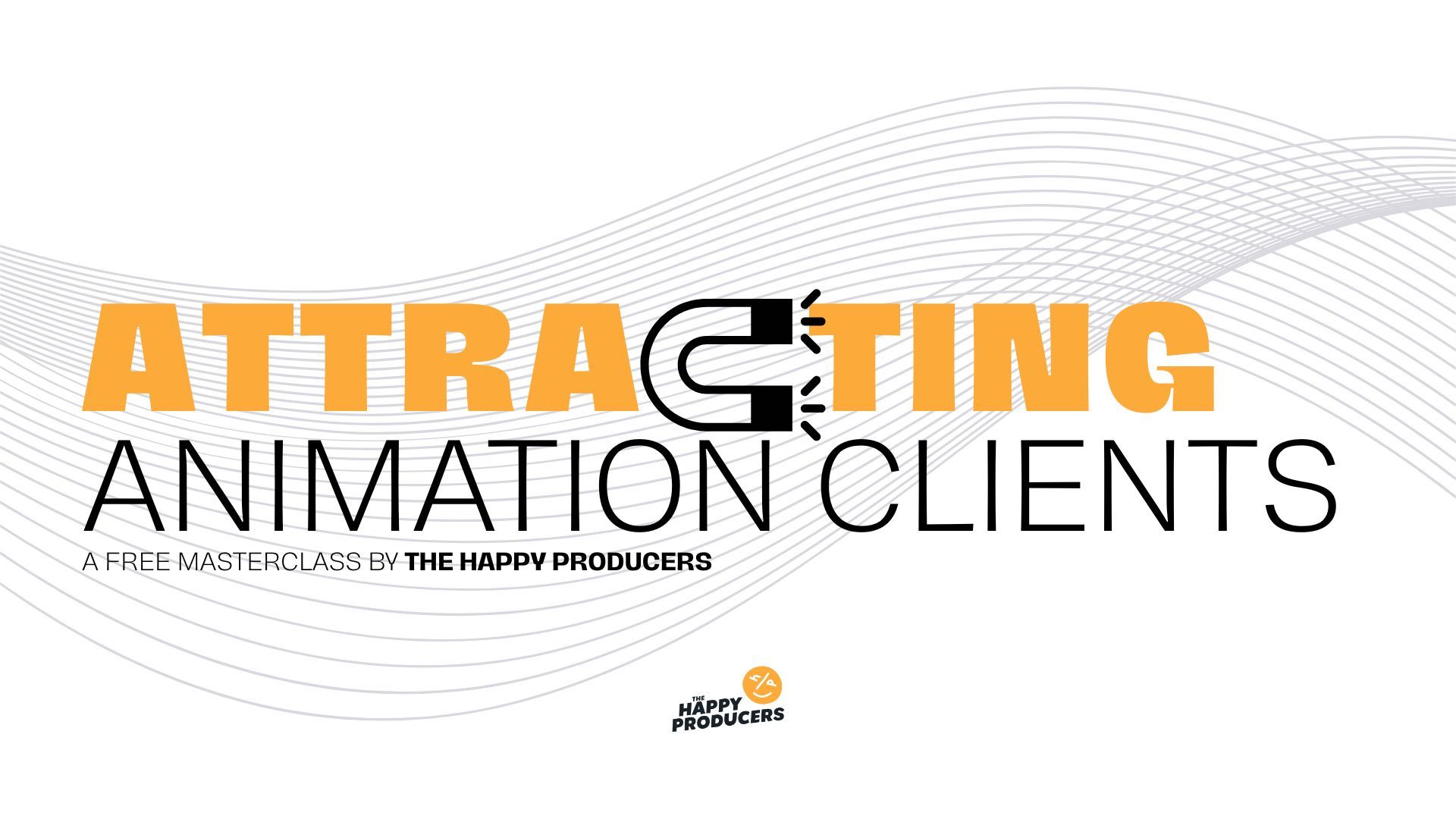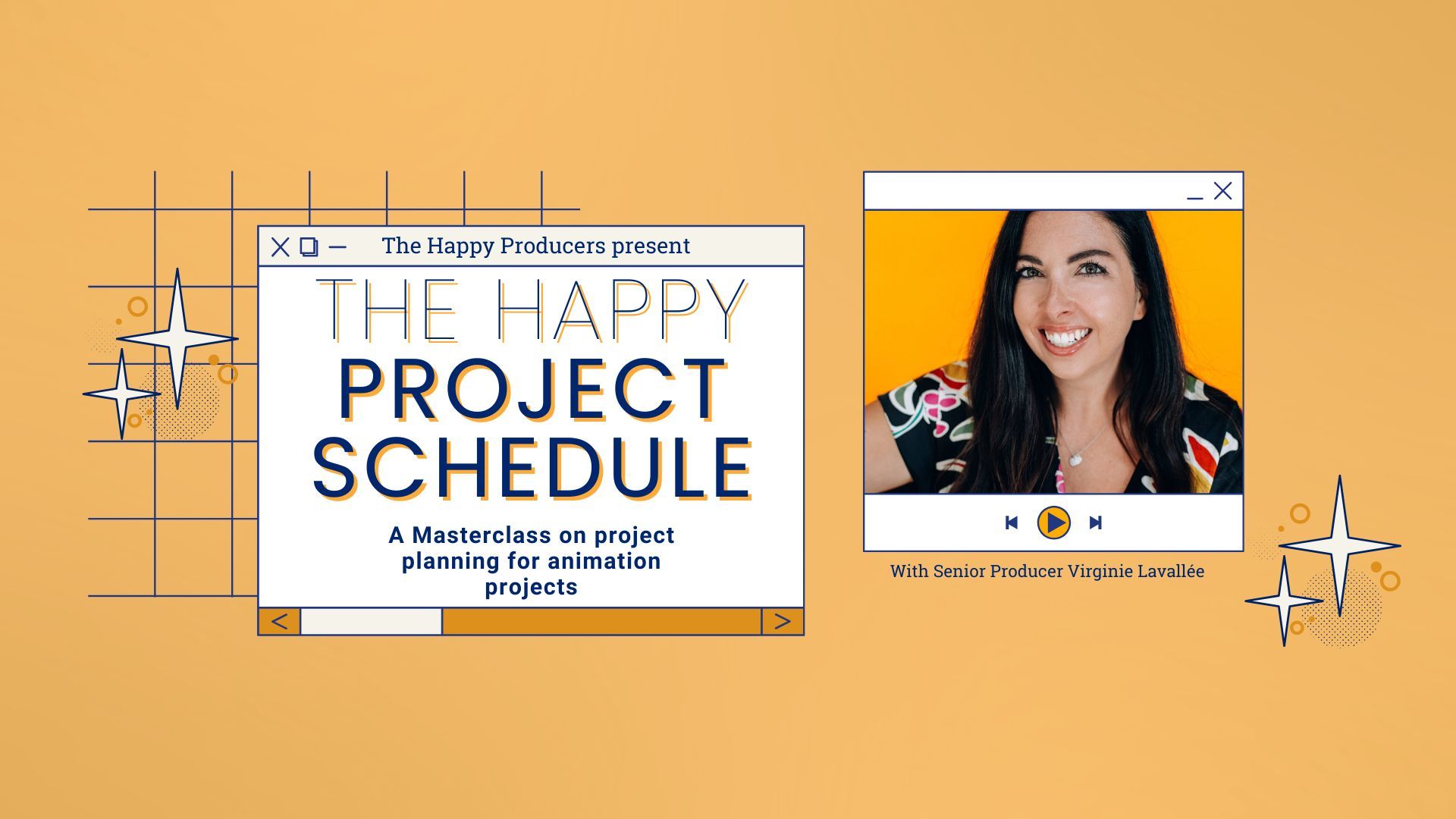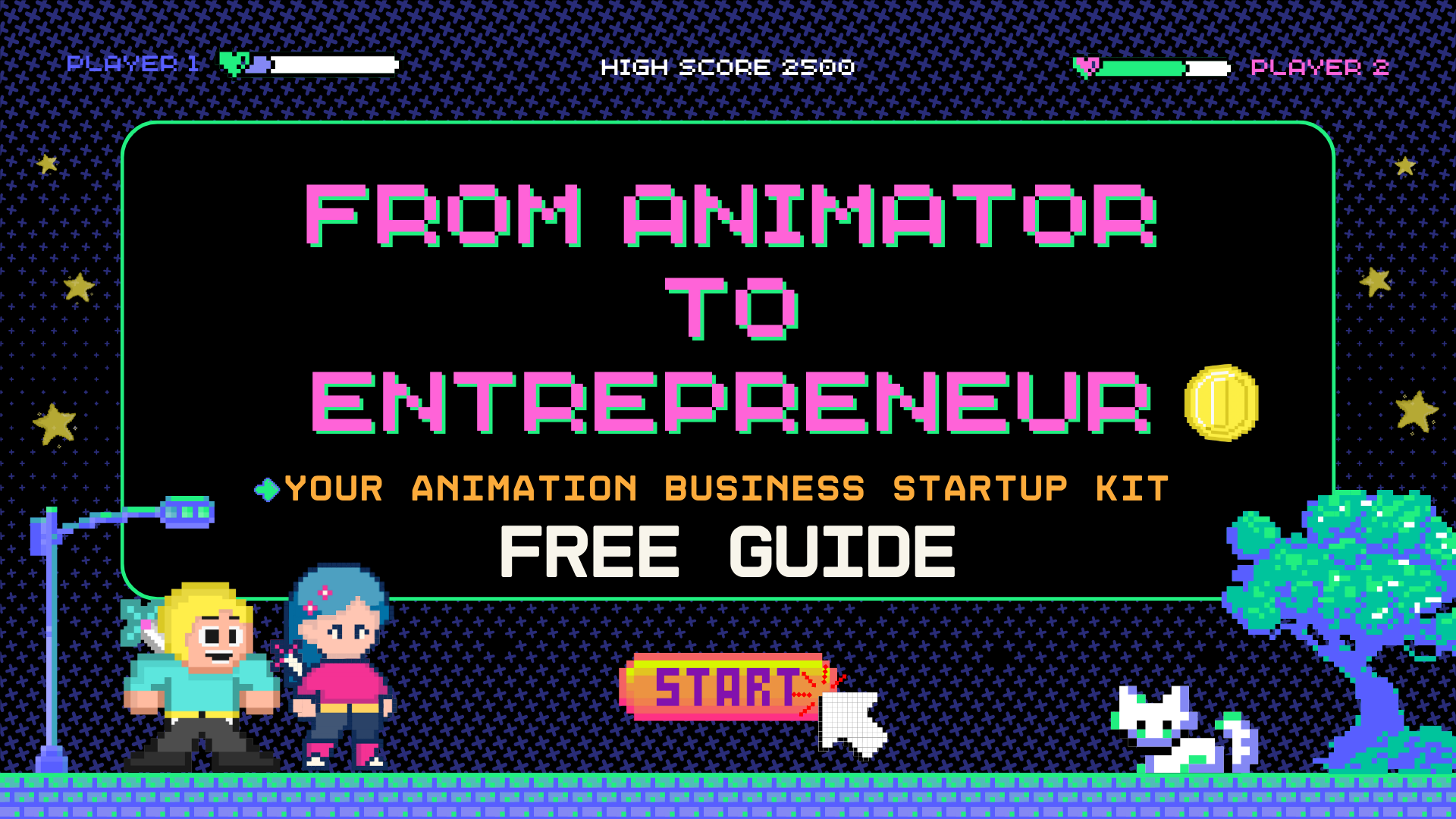S02EP14 - AI in Animation Project Management
There is a healthier and happier way to produce animation. Let's talk about it. I'm Virginie Lavallee, an animation producer on a mission to elevate well-being in animation production [1]. I'm so grateful to welcome you to the Happy Producers Podcast, an uncensored space to discuss how we can make animation production fun again [1]. Hello and welcome to the Happy Producers Podcast with your host [1]. It's me, Virginie Lavallee, your project management bestie [1]. I'm so excited about today's episode because it is the first time that we will be talking about AI for project management on this podcast and it's something that's been on my mind [1]. We just released a brand new we just completed the recording of a brand new live course on AI for project management [1]. I'll put more information in the show notes about this if you want to know more [1]. And it's been such an enlightening, inspiring experience and to be able to discuss with the peers in the industry, what they wish for the future of work and how they want to implement AI and how they want production to stay humanpowered but still leverage the good that AI has to offer so that we can automate some redundant tasks and you know better predict project success [1]. And so I'm really excited about this topic and I've been curious I you know over the past year many like many of you maybe I went through a lot of emotions around AI because uh it was all over my LinkedIn feed and it like I don't know felt very hypy on one end felt like it was overpromising and I don't know I just wasn't really buying into all the hype and then a lot of people in the industry as well and in our community also voiced being scared being worried put forth like very legit concerns about copyrights and intellectual property and etc [1]. So, it's been a very polarizing topic and uh I think I experienced many different feelings around it until I decided that the best that I could do when I was facing this huge wave, it felt like I was kind of at the foot of a tsunami and that it could engulf me or I could put on my bikini and grab my surfboard and surf the wave [1]. So, I decided to adopt a mindset of curiosity and start getting literate about AI so that I can make informed decisions about what's right for my production or not [1].
So I want to share some of my some of my insights with you today here on the podcast, one of my favorite places in the world and um I want to invite you to be curious as well, but you know also use your own critical thinking and do your own research and you know be invested in the future of work [2]. There's a true opportunity Right now, you know, there is a true opportunity to choose what we want for the next 5 years, the next 10 years, the next 20 years even maybe of our industry [2]. What do we want the work landscape to look like for us, for our teams, for the projects that we're creating together? [2] All of these things are are very important and we have an opportunity to decide who do we want to be [2]. There's a lot to say [2]. It's a polarizing topic [2]. And I'm glad that you're taking some of your time to further your thoughts by listening to this episode [2]. So, welcome [2]. I'm happy that you're there [2]. So, I told you that the mindset I was approaching this with was one of curiosity and that people around us seem to have many different feelings around AI [2]. So, we asked our community, our LinkedIn community, how they were how they were feeling about AI right now [2]. And 32% of them said that They were currently really concerned about where you're supposed to start [2]. So all these promises are getting made and you see all this hype and these cool tools, but like what does that mean for my production? [2] How does that help my efficiency? [2] Where which area needs help first? [2] Where do I integrate AI? [2] How do I do that safely? [2] So 32% said they were confused [2]. 16% said that it's hard to trust AI tools anyways, which is a solid concern, right? [2] How do they use our data? [2] Do they store for our data like are they listening to us at all times, right? [2] Like you could really go down the rabbit hole of conspiracy here, but also just copyright again and intellectual property and rights infringement [2]. It can be scary to to use AI tools [2]. 21% of the respondents said that they were unsure how it it would help project management [2]. And then 32% said that they were scared that they might get replaced at work [2]. And if you think about it, that's a message that's been like widely spread [2].
I find that it's like really just promoting a mindset of being scared that we're going to be made redundant by machine, which is not the case today as you're listening to this podcast episode [3]. So, how can we get more literate about AI and see which choices can we make as humans so that we don't get replaced so that we decide what the workplace landscape looks like [3]. So, for project management really AI has two big promises which are a promise to be able to automate labor intensive redundant boring tasks and then to better predict project outcome or project success [3]. And in order to do both of those things AI rely on relies on data [3]. And we hear a lot of the expression like AI think how does AI think and they don't really think I guess if we if we start going down semantics, but they recognize patterns [3]. So, they don't make up their own thoughts yet [3]. Um, they're not thinking about us while we're here listening to this podcast, right? [3] My chat GPT is not brainstorming ideas on my behalf while I'm here [3]. It needs to be prompt [3]. It needs to be like asked or requested to do something in order to move forward [3]. So, they're not really thinking [3]. They're recognizing patterns [3]. And where do they recognize is these patterns where it's in the data that we have and in the production team we have a lot of data [3]. There's a lot of analytics and metrics and numbers and it's a blessing because that means that that's information we're going to be able to train AI models around so that they can work better for us at automating some redundant tasks that we do like adjusting end dates in our schedules or in our software or if we're using like a sheet or whatever we're using to to schedule [3]. They could help us with um and dates [3]. They can help us like close notes, organize notes [3]. They could help us make scheduling um projections so that let's say we have one less artist we're able to recruit and want to see what that means in our schedule [3]. They're going to be able to make projections about that [3]. They're going to be able to report, create summaries, um of course, take notes in meetings, and etc [3]. But to do all of that, it requires uh data [3]. That's that's the number one thing that it does [3]. So that in itself is a good news [3].
I find like um there's a lot of redundant tasks that don't necessarily spark our biggest passion, right? [4] Nobody became a producer because they love note takingaking or versioning notes or closing closing notes in CH grid, you know? [4] Um and there are statistics that demonstrate that project managers in our fields and um animation v visual effects and gaming still work an average of 5 to 10 hours of overtime per week per week [4]. Like that's a lot and in most cases it's unpaid overtime [4]. So if we can use AI to make sure that we can remove those 5 to 10 hours of redundant work a week so that our project managers and our production team can work less overtime that is definitely a positive usage [4]. You know a humanpowered human control but like positive usage that we could do of AI [4]. So that's that's how I want to think about it [4]. I want to see where do I have pain points in my production and is there a solution that can be enhanced or made easier by AI and AI still like has a lot of limitations and um I don't want to I I don't want to be unrealistic [4]. I mean if you use AI you've probably noticed but also I took a little G gig last year, a little freelance gig working for an AI company as a like prompt trainer I guess you would call it and uh it was super insightful into like how models uh recognize the patterns like rather than think how do they create the answers [4]. And one of the things that was made apparent extremely fast and it's one of the things that you can notice as well on the the opensource um AIS that are out there like chat GPT and etc is that it has has uh hallucinations [4]. So they don't always get it right [4]. Sometimes like they give the wrong answer [4]. So if we just believe blindly anything that AI tells us, um that's something that can be really like chaotic for our production [4]. So you we need to be aware before we start using it that it does do that [4]. It has hallucinations [4]. Sometimes it gives the wrong answer and it really really really wants to give an answer [4]. It's very competitive with itself [4]. It needs to provide an answer at all cost [4]. So that means that it's willing to make up something uh rather than tell you that they don't know or that they don't have the explanation [4].
So that's also important to know that they're willing to make something up [5]. That's how much they want to like perform as a model [5]. Um they might have issues also with instruction following [5]. Um so although you can prompt with many limitations or um indications like in your prompt about the format that you want, I find that that's still very much challenging to really get the format that you want [5]. If you use an AI for example to help you create a breakdown and like I like my breakdowns to be in an Excel sheet [5]. So like I don't want a list [5]. I want it to be in a spreadsheet [5]. I want my spreadsheet to have different like Gant tabs and etc [5]. So if you like a specific format, it might be more work to get the AI together which you want to understand like a really complex format [5]. I find that they don't perform We're very well on that [5]. And then it's important to know as well that like AI has a very niched expertise [5]. So you need many different tools at the end of the day in your production [5]. Um like not unique, but you could use many different tools for many different things [5]. So it's very important to be clear about your pain point or what you're trying to achieve [5]. Have a very specific goal in mind and know what are your key performance indicators to track any progress that this is bringing to your production or not [5]. We don't just want to implement something cool [5]. Any AI tool that we would add in our production needs to be helpful and not create any chaos or not disrupt anything at all [5]. So most AI tools right now are very very niched expertise [5]. For example, you'll have a tool that um will help you for note-taking and then you'll have a completely different tool that will help you with like scheduling projections [5]. But one tool could not do both because they're in very niche expertise right now [5]. So you need to get to know AI before you start using it [5].
So the first step really is to get literate like and maybe don't trust everything you read but you know take courses listen to podcasts read articles get curious try some tools for yourself you know and notice that some of them are painfully bad and that's going to help you feel like you're not getting replaced by AI today for sure but it's also going to help you see through the hype and understand where we really stand and start getting interested in spaces where yes, maybe you could use AI tools and it could help you and be a human that can work in a AIdriven world or an AI you know friendly world if you will [6]. I don't think that it's a good idea right now to resist the techn technological advancements [6]. Um I don't think that it ever was a good idea to resist technological advancements. in the animation industry ever [6]. But I feel like I might be pissing off a few people by saying that [6]. So I'm going to move on [6]. I'm going to move on swiftly [6]. So the first thing we do is we get literate about AI [6]. And if we decide we hate it, we hate it [6]. And we don't implement it in our production [6]. If we decided we love it, then we start very very carefully and safely and you know um very slowly integrating it or integrating some tools in like some specific areas that that need help [6]. But it's important to still understand that the human and AI relationship is kind of like a sandwich where there's always a human at the beginning of any AI thought, right? [6] Which we establish isn't a thought [6]. It's a pattern recognition [6]. Um AI is not thinking by themselves [6]. They need to be prompt [6]. They need to be asked [6]. There needs to be like a request [6]. So there's always a human with human intentions and human feelings at the origin of anything that comes out of AI in your production [6]. So that's important to keep in mind [6]. And then the middle part of the sandwich where there's the lettuce and the meat and all that stuff that you put in a sandwich, that's like the labor intensive part of production [6]. The make work like redundant, boring daily stuff that a human doesn't necessarily needs to be doing [6]. Humans could be like using their brains to do more important things than doing those redundant tasks specifically [6].
So that is where AI can help us because they can do that labor intensive part faster [7]. They can do it faster than us like do a summary, translate something, um you know create a report like many many things they can do much faster than we can [7]. But then once the output once once AI outputs something there's a human piece of bread you know on the other end of that sandwich where the human validates everything and use their critical thinking to take the insights [7]. So AI doesn't make decisions it doesn't provides solution, it gives insights [7]. So you need to have a human person that takes those insights and analyzes them, organizes them, shares them, communicates them and etc [7]. So think about the AI sandwich when you get scared AI might replace you and know that currently um currently they are the meat tour sandwich [7]. So there you have it [7]. So the second thing that you could do after being data after being um AI literate is to get really close and friendly with your production data [7]. So, time logs, end dates, bid times, you know, dates, numbers of iterations, workflow, full steps, dependencies, number of notes, uh like etc., right? [7] Number of versions, all of this data is super important [7]. So, learning how to source this data and organize and analyze it is pretty much a highly sought after skill right now in the production team and it's only going to become more and more important because if we are collaborating with AI because they can do labor intensive things a little bit faster than us then this AI collaboration is intertwined with the fact that you both speak with data and you both use data and you both rely on data sourcing and analyzing to make decisions or to provide insights [7]. So that is the the common language is going to be your data [7]. So if you're not currently sourcing any data, production metrics or analytics at your studio, well that's your first step [7]. You start sourcing it [7]. And then if you're already using data at your studio, you want to make sure that you streamline the way that it's sourced, the way that it's used, the way that it's communicated, uh you want to make sure there's no confusion around it, that everybody agrees about the data, and that it's easy to communicate it [7].
So you know, AI is going to be really helpful in many ways [8]. And it's going to be tempting to integrate it into our productions, but we want to be reminded um that our productions are often, if not in all cases, covered by a non-disclosure agreement and a contract that usually has many different confidentiality clauses because we work on original IPs or we work on other people's ideas, we work on content that's trademarked and etc [8]. It's um content and information that we're not free to share with an opensource AI tool, right? [8] So you cannot put your client's script obviously in chat GPT because Chad GPT sources all the information and trains their model around the information that you provided [8]. So it's essential that there's always a super strong context for security and safety around how you use AI [8]. There's a lot of talk about the aspects of it and that is obviously extremely important and I find that it's being very much covered by the pub culture and just I see a lot of very scientific and interesting research around it but what I want to press is equally important in production is really making sure that uh any confidentiality agreement extends obviously to your use of AI right and that in at no time Do you ever put something that's confidential or protected by an NDA into a public tool? [8] Like never, never, never [8]. And if you're using a local tool internally, even then you need to make sure that this is a no risk space [8]. So as you see, it's a very complex topic [8]. So if you really want to try and start using AI in your production, something I suggest is really to pinpoint some zero, you know, or very very lowrisk tasks like internal tasks that wouldn't impact your deadlines or that the client won't be in contact with that uses like anonymized information or anonymized data or uses information that is fine to be shared right so I would pinpoint a few tasks internally that we're establishing or a zerorisk space and that that's what I would use to start and you know at the end of the day I cannot predict the future [8]. I don't have an oracle or a crystal ball, but I can tell you that currently production is still something that is very much human driven [8].
So, continue to invest in highly valuable skills that are not about to go out of style anytime soon like conflict management, relationship building, you know, building trust with your team and your client, creating a space for creativity and innovation [9]. Anything that has to do with expectations management, is going to be a highly valuable skill for many many many years to come [9]. Anything that's related to team building and motivation [9]. And then also of course everything pertaining to change management [9]. Things are changing extremely fast in the industry [9]. We work in a fast-paced work environment to start with [9]. It's an iterative space in which we work [9]. We're always versioning, trying new things, you know, getting a huge amount of feedback [9]. So there's specific specific challenges that we face in the industry that AI is not going to be able to fix for us [9]. There is no, you know, magical button to fix all of our project scope issues with our client yet [9]. So until then, you need to fortify those human skills that will not be replaced by AI anytime soon so that you can futureproof your career, but also be part it's an opportunity to be a human, right? [9] Be part of building the future of this work and building the future of the animation visual effects [9]. and gaming industries [9]. And if you're curious uh about AI, you're ready to get literate, you want to talk more about what it means for project management and what are some steps that you can start to do in order to create a context of security and safe AI implementation in your production and the type of AI implementation that answers to true pain points and doesn't create any disruption [9]. Well, then I have recorded the perfect course for you [9]. It's called project management in an AIdriven world [9]. We just ran the course live with participants from six different countries [9]. It was so cool and now the recordings are available [9]. When you register, you get instant access and it's a lifetime a lifetime access to this uh course [9]. It's three 90inut lessons and I provide a lot of tools like scope of work document, an analytics cheat sheet, a document full of templates so that you can document and streamline your processes [9]. The value of this course is unbelievable [9].
And when you register, you also get access to secret bonuses that well, you can learn more about by visiting the sales page or by registering [10]. So, I would love to have you if you know that AI is the future of work, but that you want to make sure that it's always a humanpowered space and that the people in your team very much stay a priority in your production [10]. All right, guys [10]. That's all and I look forward to see you in the next episode of the Happy Producers Podcast [10].
Please note that this transcript is generated only from the excerpts you provided [1-10]. If the original podcast episode was longer, content outside of these excerpts is not included.
